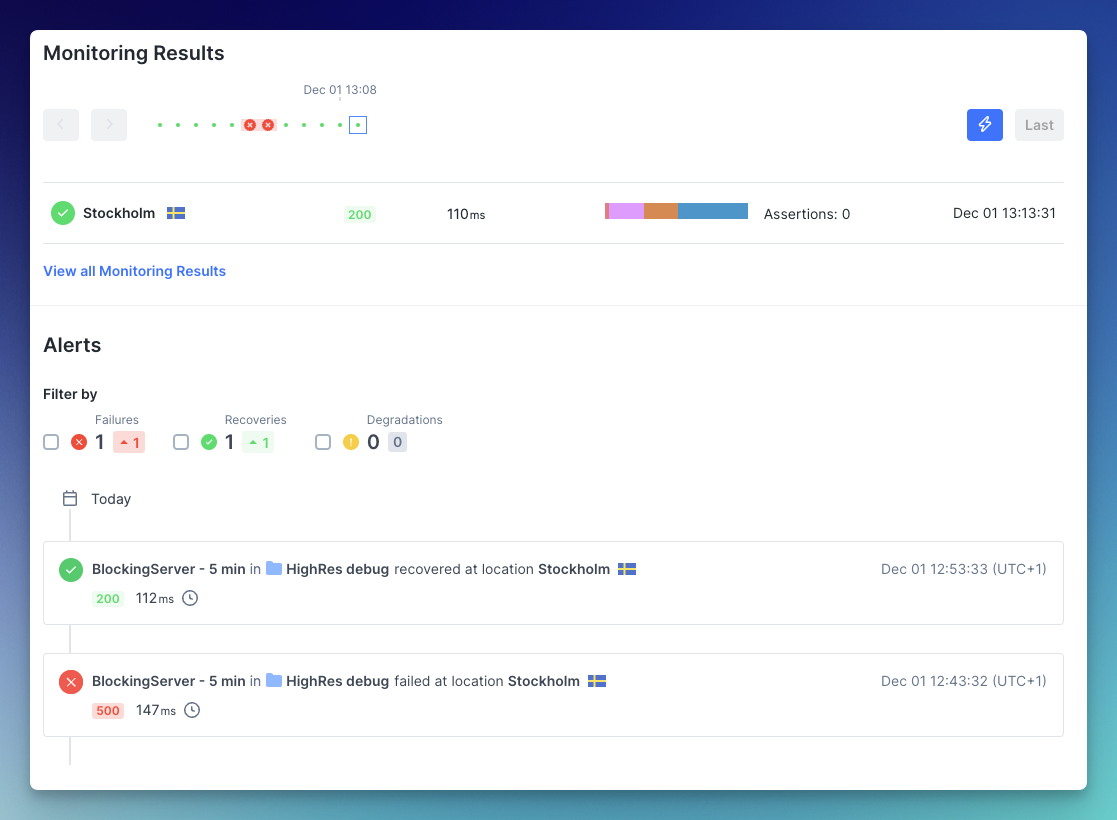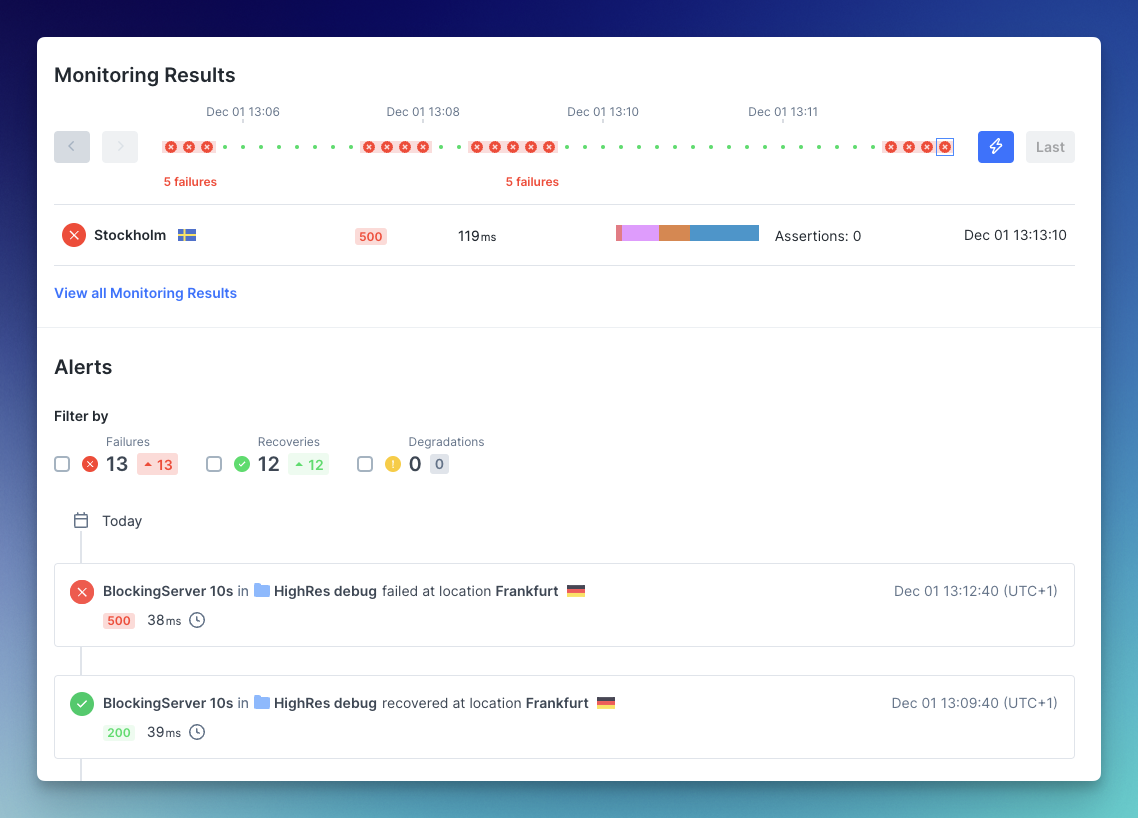
Running TaxBit Enterprise in production without proper monitoring is like flying blind during a hurricane. Their SLA promises 99.9% uptime, but doesn't cover silent failures, bad cost basis calculations, or the monthly IP address changes that break your firewall rules.
Here's the fundamental problem: TaxBit's definition of "working" is different from yours. To them, returning HTTP 200 with an empty result set counts as success. To you, that's a catastrophic data loss event during tax season.
What to Monitor (Beyond Their Useless Status Page)
API Response Times: TaxBit's "normal" response time is 200-500ms. When it hits 2+ seconds, their load balancer is struggling and you're about to hit timeout hell. Set alerts at 1.5 seconds.
Authentication Token Age: Tokens expire every 24 hours exactly. Monitor token age and refresh at 20 hours or your batch jobs will fail at 3AM on a Sunday. I learned this the hard way during a quarterly filing deadline.
Data Validation Errors: TaxBit returns 200 OK even when your data is rejected. Monitor for responses where data.processed_count is zero despite sending transactions. This means their validation failed silently.
Cost Basis Drift: Sample cost basis calculations weekly and compare with your own calculations. I've seen cases where timestamp issues caused 6-figure cost basis errors that took months to catch. For crypto accounting standards, reference the FASB ASC 2023-08 guidance and AICPA accounting practices.
The complexity of crypto cost basis calculations follows FIFO/LIFO methodologies but with digital asset nuances. For validation algorithms, see double-entry bookkeeping principles and Stellar's consensus protocol for distributed ledger accuracy patterns.
Critical Alerts That Save Your Ass
Dead Webhook Alert: If TaxBit stops sending webhooks for transaction updates, you won't know about processing failures until reporting time. Alert if no webhooks received in 24 hours during active trading periods.
// Monitor webhook gaps - adjust for your trading volume
const lastWebhookTime = await redis.get('last_taxbit_webhook');
const hoursSinceWebhook = (Date.now() - lastWebhookTime) / 3600000;
if (hoursSinceWebhook > 24 && tradingVolume > 0) {
alert('TaxBit webhooks may be down - check API manually');
}
Batch Processing Failures: Set up monitoring for batch job success rates. If success rate drops below 95%, something's wrong with your data format or their API is having issues.
IP Whitelist Failures: TaxBit's API IPs change monthly without notice. Monitor for ECONNREFUSED errors and auto-check if their IP ranges have changed.
Error Patterns That Mean Deeper Problems
Intermittent 504s During Business Hours: Not just high traffic - often indicates their database is struggling with complex queries. Switch to simpler API calls or batch smaller request sizes.
Cost Basis Calculations Taking 10+ Minutes: Usually means you have data quality issues TaxBit is trying to resolve. Check for duplicate transaction IDs or missing fee data.
Successful Imports with Zero Processing: Your data format is wrong but TaxBit's validation is failing silently. Common issue with timestamp formats or currency code mismatches.
Random Authentication Failures: If tokens randomly become invalid before 24 hours, you're hitting their rate limits too hard and they're silently revoking access.
Infrastructure Dependencies You Can't Control
AWS us-east-1 Issues: TaxBit runs primarily in AWS us-east-1. When that region has issues, TaxBit has issues. Monitor AWS status if you're seeing widespread failures.
Third-Party Exchange API Downtime: TaxBit pulls real-time pricing from exchange APIs. When major exchanges have API issues, TaxBit's cost basis calculations can get stale or fail entirely.
IRS Systems During Tax Season: TaxBit's compliance features depend on IRS systems. During peak filing periods (March-April), expect slower response times and occasional failures that aren't TaxBit's fault.
Monitoring Stack That Actually Works

// Basic health check that catches more than their status page
async function taxbitHealthCheck() {
const checks = await Promise.allSettled([
// API responsiveness
fetch('https://api.taxbit.com/health', { timeout: 5000 }),
// Authentication working
fetch('https://api.taxbit.com/user/profile', {
headers: { 'Authorization': `Bearer ${token}` },
timeout: 5000
}),
// Data processing working (test transaction)
fetch('https://api.taxbit.com/transactions/validate', {
method: 'POST',
body: JSON.stringify(testTransaction),
timeout: 10000
})
]);
return checks.map((result, index) => ({
check: ['api_health', 'auth_check', 'data_validation'][index],
success: result.status === 'fulfilled' && result.value.ok,
response_time: result.value?.responseTime,
error: result.reason?.message
}));
}
Alerting Rules That Don't Cry Wolf:
- API response time > 2 seconds for 5 consecutive minutes
- Authentication failures > 3 in 10 minutes (indicates token issues)
- Data validation success rate < 90% in 1 hour
- No webhook received in 4 hours during market hours
- Cost basis drift > 5% from your calculations
Recovery Procedures for Common Failures
When TaxBit API Goes Dark: Switch to local cost basis calculations temporarily. TaxBit provides export APIs to sync up later, but you need backup systems for compliance deadlines.
When Data Import Fails Silently: Implement idempotent retry logic with transaction fingerprinting. Use SHA256 of transaction details to detect duplicates during re-import.
When IP Whitelisting Breaks: Maintain backup API credentials routed through different network paths. TaxBit supports multiple client credentials per account for exactly this scenario.
The key to production TaxBit monitoring is assuming their "success" responses are lies until proven otherwise. Validate everything and trust nothing.
